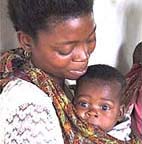|
||||

Credits and Copyright
| |
|||||||||
National Governments GAVI’s Board includes representatives of several governments; development agencies from donor countries and health ministries from developing countries. Currently, the governments of Bhutan and Mali contribute the developing countries’ perspectives, and the governments of Canada, the Netherlands and Norway contribute the donor countries’ perspectives on the Board. The GAVI Working Group includes representation from the United States. The roles of national governments in GAVI Low-income countries: The primary responsibility is to ascertain that the health and financial sectors develop effective measures to provide services to those in greatest need. In addition, participating governments will:
High-income countries: The primary responsibility is to ensure that health receives an adequate proportion of external aid, and that this is channelled through the sector coordination mechanisms. In addition, participating governments will:
|
|||||||||
| Contact GAVI | Guestbook | Text version | Credits and Copyright | |||||||||
